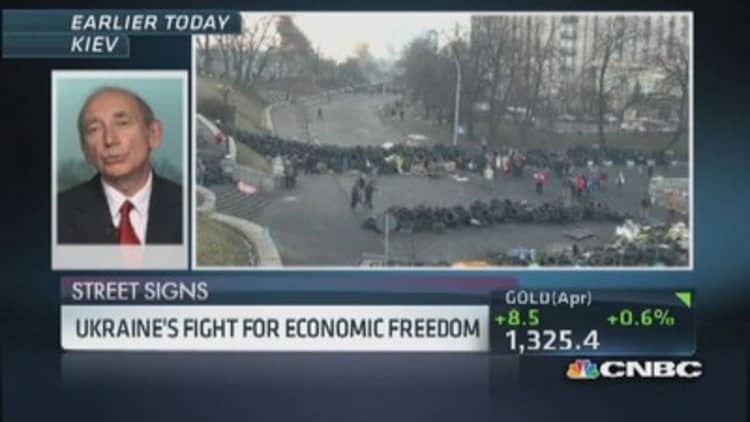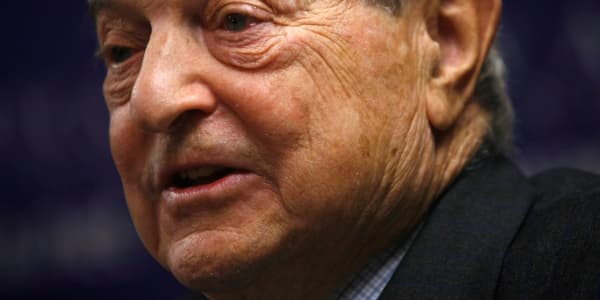
Ukraine now faces the risk of debt default as the country tries to get back on its feet following the ousting of President Viktor Yanukovych at the weekend, analysts say.
Its parliament on Saturday voted to remove Yanukovych after a week of bloodshed and set an early election for May 25. Ukraine plunged into a crisis in November after Yanukovych rejected a deal to deepen ties with the European Union (EU), triggering protests.
(Read more: Ukraine on European course: US warns Putin against grab)
"Although the ousting of Viktor Yanukovych is something of a watershed moment, it has not brought clarity and certainty to Ukraine," Alastair Newton, a senior political analyst at Nomura said in note.
"Indeed, political uncertainty has arguably increased – including around the outcome of the presidential election set for 25 May – bringing with it a potential increase in the probability of a sovereign default," he added.
Ukraine's economic woes run deep and the country has been reliant on aid from Russia. A slump in demand for exports of steel and industrial machinery and poor economic policy has taken a toll, analysts say. And while Ukraine's currency has been kept artificially high to help pay for imports and to keep the servicing of foreign debt down, the country's exports have suffered as a result.
Credit ratings agency Standard & Poor's on Friday lowered Ukraine's long-term rating from 'CCC+ ' to 'CCC' saying the political crisis has put the country's ability to service its debt at risk and raised uncertainty over Russia providing promised aid.
Russia's Finance Minister Anton Siluanov told CNBC at the weekend that his country was interested in seeing a 'normalization' of the situation in Ukraine and would provide support.
(Read more: Russia: We will support Ukraine's return to normality)

The EU has pledged support to Ukraine and EU foreign policy chief Catherine Ashton is expected to travel to Ukraine on Monday to discuss measures to support an ailing economy.
"The ouster of President Yanukovych in Ukraine raises uncertainties about near-term stability and strategic Russia-EU-U.S. relations," analysts at Mizuho Corporate Bank said in a note. "For now though, nerves about Ukraine's possible default warned by the S&P on Friday may be overshadowed by the feel good factor about the U.K. and EU promising support."
(Read more: Gold eyes 4th week of gains on Ukraine default fears)
Analysts said that while Ukraine's economy is relatively small, with gross domestic product (GDP) below $200 billion, political developments remained a risk factor for world markets.
In particular, analysts said they would be watching for potential tension between the West and Russia over the future of Ukraine.
The EU has offered to revive a trade deal that Yanukovych spurned under Russian pressure in November, Reuters reported.
"Ukraine is a delicate situation. It is very important to Russia, which will not tolerate any regime that is hostile to them," Hans Goetti, head of investment Asia at Banque Internationale a Luxembourg, told CNBC Asia's "Cash Flow."
"If you're looking at a pro-Western government that is completely orientated to Europe, I don't think that's going to happen," he added.
Five-year credit default swaps - how much it costs to insure Ukraine's risk of default over a five-year period - fell on Monday by 161 basis points to a 3-week low. Analysts cited western aid as being substantial enough to prevent a credit event from taking place. Stocks in Kiev, meanwhile, soared 12 percent higher on the UAX Index by early afternoon.
— Writing by CNBC's Dhara Ranasinghe. Follow her on Twitter at @DharaCNBC





